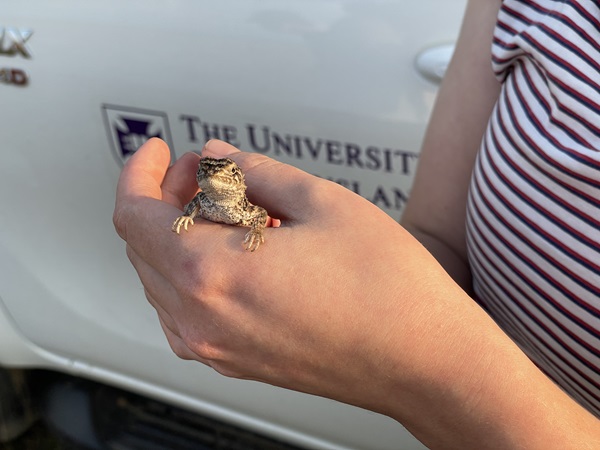The need for balance between people and nature is absolute, so important it is recognised in UN global agreements on everything from biodiversity and conservation, to carbon storage, climate regulation, soil maintenance and water quality.
Agriculture is not only a significant driver of land use, but the second greatest threat to endangered species worldwide. Many once-thriving species of native fauna and flora have lost or now share habitat with encroaching humans. Some have adapted. Often, though, the long-term impact is degraded functioning of the natural environment and, ironically, a corresponding decline in agricultural output.
For at least the foreseeable future, human life is dependent on agriculture. In Australia alone, agriculture accounts for more than half of land use and 11 per cent of goods and services trade. It is critical, then, that we manage the land on which it depends sustainably. With Australian ecosystems at risk from extreme climate change and severe bushfires, exacerbated by soils low in nutrients and poorly adapted to grazing animals like cattle and sheep, a sustainable approach to addressing farming and ecological challenges in tandem is more important than ever.
Why biodiversity matters
Bio-friendly farming manages land in a way that supports a well-functioning ecosystem and boosts productivity. A healthy diversity of native animals provides essential services such as pest control, nutrient cycling, pollination and seed dispersal.
In the face of environmental pressures, we have reached the tipping point where biodiversity isn’t simply ‘nice to have.’ It is critical to food security. As our climate changes, we need food systems that are adaptive and resilient. Understanding how to create these while meeting global environmental, social and governance (ESG) standards requires research, innovation and systemic change. Industry and consumers alike will play a role in transitioning to a future where biodiversity is central to food production.
The path to sustainable land management
Dr April Reside is a lecturer in the School of the Environment and the School of Agriculture and Food Sustainability and an expert in species distribution, habitat modelling and threatened species conservation. Through her research, she is identifying land management practices that best support biodiversity and working with farmers to make these practices more easily and widely adopted.
The benefits to landholders? Not least of these is pest control and reduced pesticide use. But key knowledge gaps remain, and Dr Reside’s next research project in the Lockyer Valley and Darling Downs region of Queensland will draw on the acumen of local landowners to gain a better understanding of the ecological costs and benefits of specific agricultural land management practices. This means studying native species behaviour and the range of services they provide to farming practice. From there, informed landholders and farmers can develop ways of harnessing those services for mutual gain.
PhD students and postdoctoral researchers under the supervision of Dr Reside will investigate specific endangered species in the Darling Downs; as well as the socioeconomic barriers preventing landholders from participating in biodiversity-friendly farming. From there, they will identify land management practices that ‘fit’ from a cultural, ecological and economic standpoint.
Central to all this is the collaboration between researchers and landholders to identify realistic and sustainable solutions. Only through knowledge-sharing and strong relationships can the adoption of best practice occur, embraced by and embedded in communities. April and her team are committed to working with agricultural partners to co-create solutions and maximise habitats where endangered species can live successfully in and around farming.
A star player in all this research is a tiny reptile native to Queensland – the Condamine earless dragon. It is one of Australia’s most endangered reptiles and urgent action is needed to save it from extinction. The hope is that this little dragon will show the way to protecting many other threatened species.

To follow April and her team’s progress with the Condamine earless dragons and other wildlife projects, visit her website.
To find out more about this work and how you can support research in the Faculty of Science, please contact Anthea Barry, Advancement Manager in the Faculty of Science.



